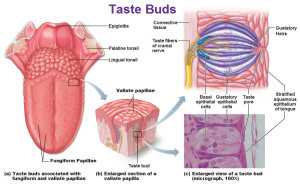In college, it is very hard to get a full night’s worth of sleep. With schoolwork, clubs, Greek life, going out, and studying, there is no way that you will be able to sleep for a long time. I swear I have sleep deprivation so I wanted to research it and see what that really means.
In America today, at least 40% of Americans are sleep deprived. A typical adult needs an average of 7-9 hours of sleep each night. However, obviously most people do not have time to sleep that much. Most people average 6 hours of sleep during the week every night. Sleep deprivation can come from a sleeping disorder. Apparently around 70 million people in America have insomnia, they probably just don’t know it.
Sleep deprivation is not a good thing, and can cause short and long term affects and issues. First off, it is not healthy to be sleep deprived. If you do not get a long good night’s sleep, and then you will have problems in the daytime with alertness. You will have a hard time remembering things, concentrating, focusing, and staying awake. This can include falling asleep while driving which is very, very dangerous and risky. Surprisingly, 41% of people driving have admitted to falling asleep at the wheel at least once. It can be as dangerous as driving drunk. It is estimated that sleep deprivation is the cause for one out of every five car accidents that occur.
Many long term affects follow sleep deprivation. Not sleeping enough messes with your biological rhythms. Of course it will stress your body and make you tired, but it also puts strains on your interactions with others, your work, and other parts of one’s life. Losing just 90 minutes of sleep can cause you to be 32% less alert the next day. As a result of this, your motor skills can become impaired and your hormones can fluctuate inappropriately. Sleep deprivation also causes your immune system to be weak. This will make you become sick more often. It can also cause high blood pressure, heart failure, diabetes, and many more serious illnesses. Not getting enough sleep can also severely affect your mood. It can also affect your body and make you obese.
Your body needs sleep because it is the time when your brain organizes itself. Sleep deprivation can also make you develop Alzheimer’s disease faster. This is because if the body doesn’t have sleep, then the central nervous system that cleans the brain is not able to empty the information. Then cerebrospinal fluid starts to fill up throughout the days. This liquid starts to build toxins in it. If one is also sleep deprived this can cause brain cell loss.
While you sleep, your brain sorts and stores information that you got that day. Once we get information, it moves from our hippocampus to our prefrontal cortex, to the neocortex region, where long-term memories are stored. Every night this process happens. Without sleep, we wont be able to remember things and false memories may occur. You will incorrectly process memories if you do not get enough sleep and may confuse your events that have happened.
Now here are some ways to try avoiding sleep deprivation in college
- Try to avoid caffeine at night or even during the day. This will keep you up at night and will make it hard to fall asleep.
- Try to wake up close to the same time everyday. Do not sleep in on weekends and try t keep the same sleep schedule.
- Do not watch TV at least an hour before bed.
- Do not do homework right before bed or use your computer.
- Put your phone down at least an hour before you want to fall asleep.
http://www.asri.net/sleepsurfaces.shtml
https://www.aaafoundation.org/sites/default/files/2010DrowsyDrivingReport_1.pdf
http://auto.howstuffworks.com/texting-while-driving-worse-than-drunk-driving.htm
http://www.webmd.com/sleep-disorders/features/important-sleep-habits
http://health.howstuffworks.com/diseases-conditions/headache/what-are-hormone-related-migraines.htm
http://animals.howstuffworks.com/mammals/elephant-memory.htm





 http://www.sciencedaily.com/releases/2015/01/150129094341.htm
http://www.sciencedaily.com/releases/2015/01/150129094341.htm














